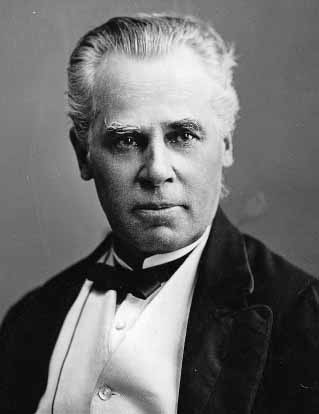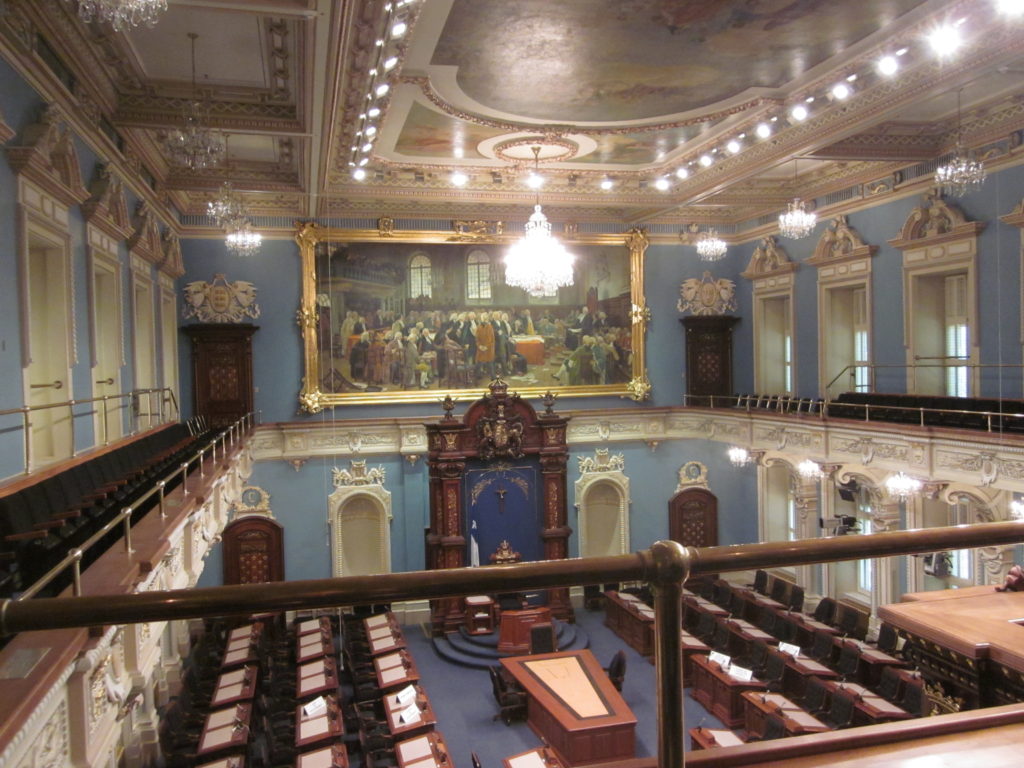One cannot tell the story of the northeastern Franco-Americans without discussing survivance. This was an ideology of cultural survival in which the French language and the Roman Catholic faith were mutually supportive, with the loss of the first entailing earthly perdition and eternal damnation. These were the two pillars of French Canadians’ identity, the primary markers of their distinctiveness once settled in the United States. They upheld their sense of community. And priests, editors, and middle-class professionals never tired of reminding their flock or working-class compatriots of their duty to their Church, their homeland, and their descendants.
The same ideology animated Quebec culture through the nineteenth century and well into the twentieth. With the Catholic faith and church institutions receding from Quebec’s public and social life beginning in the 1960s, one major pillar of survivance disintegrated. The significance of language expanded to fill the void; that became the supreme good. The French tongue would be the new idol. As Quebeckers stood on Bill 101, which made French the official language of public life in the province, they looked around—and down—to find that there would be no saving the language, and therefore French-Canadian culture, beyond their borders. Hors de la patrie, point de salut.

This attitude was about as old as emigration from Quebec. When Bishop Plessis headed west in 1816, he expressed no hope for French Canadians who had settled in Upper Canada [present-day Ontario]. They would lose their culture and faith; by emigrating, they had permanently alienated themselves from their heritage. That Quebec-as-fortress view was elaborated at the end of the nineteenth century through the work of elites like Fr. Antoine Labelle and Jules-Paul Tardivel. It was cemented in the era of neonationalism, following the Second World War, and it is still with us.[1] Granted, in the last forty years, Quebeckers’ relationship to Franco-Americans has been marked by ignorance—and yes this is a rather slim silver lining—more than contempt.[2]
Franco-Americans’ view of their cousins north of the boundary line has been far more ambivalent, and with good cause.[3] Persistently they have sought to erode the contempt and ignorance. Quebec is the ancestral homeland and the embodiment of French cultural aspirations in North America. It is an alternate universe that provides hope for the survival not of a shared faith, perhaps not even a shared language, but a common story and culture.
Just as some Quebeckers look down on other francophonies in North America, Franco-Americans look up to la belle province—even if the Quebec of today is very different from the Quebec that their ancestors left, a Quebec that is often romanticized beyond all reason.
This is not a uniformly positive development. Franco-Americans have a record of overlooking certain policies and social realities in Quebec that they vehemently reject in their own country. With no sense of inconsistency, some lament the corrosive effect of assimilatory policies and the American melting pot while defending the exact same forces in Quebec, where minority cultures are suspect if not threatening or entirely illegitimate. As the argument goes, French Canadians are an embattled minority in an English-speaking sea and bear a history of oppression. (Or, “this is us and we’re different; in this case it’s okay.”)

But French Quebeckers are quick to brush away criticism of what they deem to be their complete latitude to settle internal matters. If you’re an outsider and you challenge any resolution of the Assemblée nationale, you’re just engaging in “Quebec bashing,” i.e. letting your prejudice color your understanding of the real situation in the province. If you’re from Quebec, then you are a colonisé, i.e. someone who has internalized the language of the oppressor. Recent debates over the Charter of Values and Bill 21 on religious symbols witnessed much of this deflection over legitimate objections.
In this historian’s view, the situation in Quebec is reminiscent of the early English settlement of New England. Pilgrims and Puritans were escaping oppression; they claimed the freedom to practice their faith and that narrative has entered American historical orthodoxy. As is typical, the story was more complicated: what they really wanted was the freedom to impose their own claims and to establish their own ideal society—in which error would have no rights.
Franco-Americans now have the opportunity to reevaluate Quebec historical orthodoxy—a narrative formulated by elites, as in days of yore, and crafted to appeal to French speakers everywhere. Often, Franco-Americans have had nowhere to look but north, satisfied that there lay the land of their ancestors, there lay occasional funds for Franco endeavors (a budgetary envelope that is meant to promote le rayonnement du Québec).
* * *
Franco-American history is a lot of things to a lot of people. Some explore it from a genealogical angle; to others, it informs their identity and community and helps them make sense of their heritage and culture. Many scholars have studied the larger significance of French-Canadian emigration—its impact on the making of the United States or various subregions. Another path is to approach Franco-American history as an opportunity to apply political lessons from the past to the present. For policymakers, that opportunity is far more self-interested.
I would add another possibility: Franco-American history as an opportunity to put majority-minority relations and immigration history under the microscope. Expatriated French Canadians make for a valuable case study as we seek to understand what is possible and what isn’t for minority groups in North America—valuable not least because of their background in distinctive Quebec. What can cultural freedom and cultural opportunity look like? Franco-American history provides cautionary lessons and perhaps guide posts as well.
When put into conversation with the Quebec experience, Franco-American history invites us to contest oppressive and discriminatory measures, for instance the reviled Maine law of 1919 and similar language bills enacted elsewhere. It invites us to apply an even standard of openness, diversity, and inclusion. Most significantly of all, the transnational history of survivance shows that majority-minority relations are not a mere matter of lawmaking. Barriers also come in the form of monolithic categories handed down by elites—and those, as is patently obvious, are by no means a thing of the past.
[1] Quebec neonationalism is built around an apparent paradox: a new openness to the world and the pursuit of civic nationalism, but also the continued identification of the province as the exclusive homeland of (the) French-Canadian people.
[2] History education in Quebec public schools has done nothing to remedy this situation. But young Franco-American voices (e.g. the French-Canadian Legacy Podcast and My French-Canadian Family) are rising up to open minds and challenge misconceptions.
[3] Professor Susan Pinette (University of Maine) has recently expressed this ambivalence in a public lecture for the Lewiston Public Library.
Very thought-provoking stuff. I think it’s always worthwhile to point out the separate experience of the Acadians from the Québécois which is intertwined in Franco American culture. Therein lies a more passive version of suvivrance which is more ambivalent to the cultural orthodoxy that the Bloc Québécois promotes.
Yes, good point – an important distinction. Thank you for highlighting that, Robert!